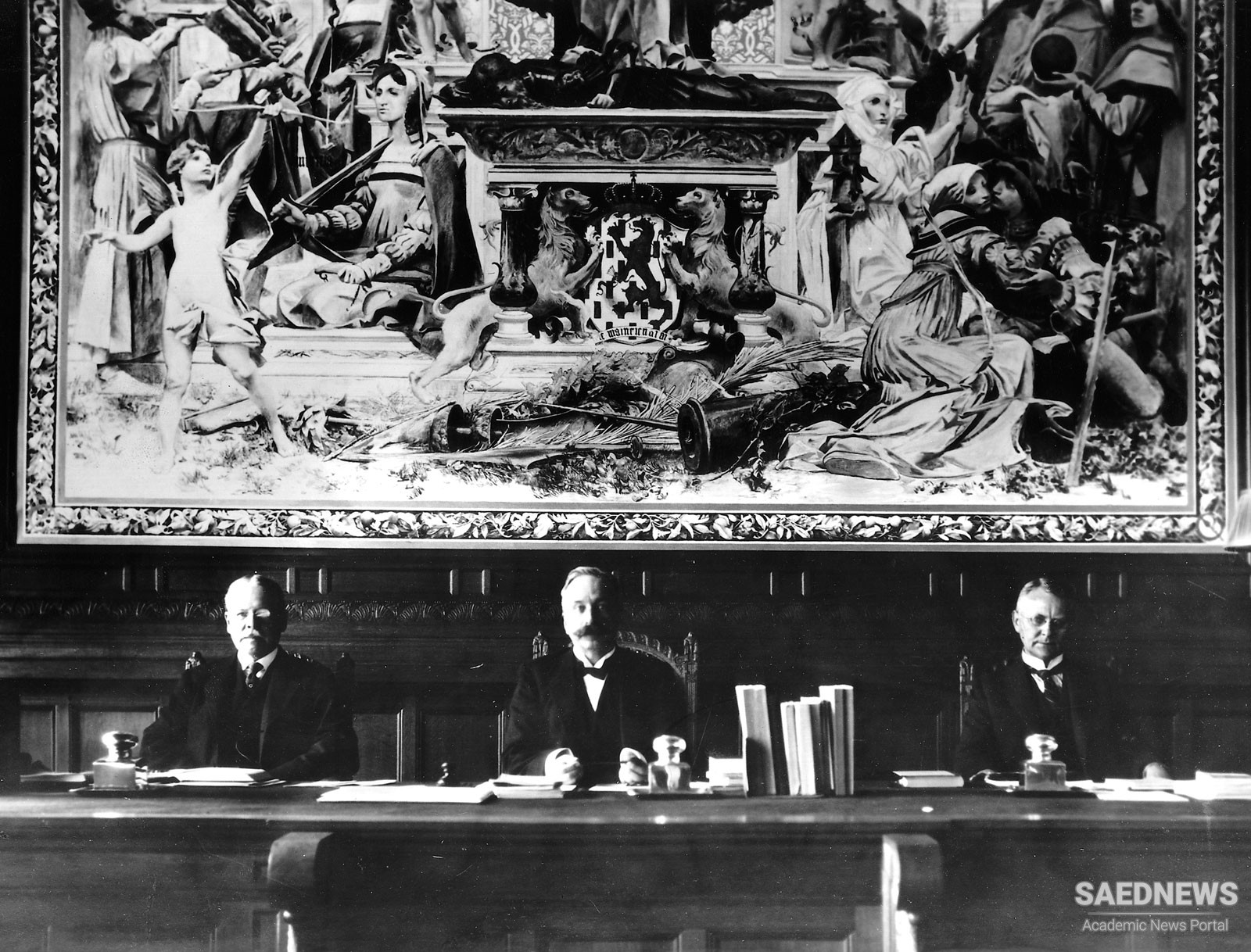This was the first universal peace congress. Subsequent congresses were held nearly every year thereafter for the next twenty years. At the third universal peace congress, held in Rome, the participants agreed to set up a permanent headquarters in Berne. The resulting International Peace Bureau began operations in 1892. It won the Nobel Peace Prize in 1910 and is still active. The universal peace congresses were prestigious events that attracted the support of leading political figures. During the 1908 congress in London delegates were given a reception by the king at Buckingham Palace and a dinner with Prime Minister H. H. Asquith, who offered a toast to the international peace movement.
The 1889 Paris exposition also featured a meeting of European parliamentarians, mostly British and French, who founded the Interparliamentary Conference, later renamed the Interparliamentary Union, which continues today. Over the following decades annual meetings of the Interparliamentary Conference attracted hundreds of participants, primarily Members of Parliament but also ministers, diplomats, and professors of international law.
In 1904 the conference gathered in St. Louis. Afterwards a delegation of parliamentarians was invited to the White House for a meeting with President Theodore Roosevelt. In 1906 more than 600 parliamentarians attended the Interparliamentary Conference in London, which sat in the House of Lords. By 1910 the Interparliamentary Conference included delegations from twenty countries, and counted nearly 2,900 parliamentarians as members.
One of the most remarkable and strangest episodes in the history of peace was the 1899 Hague Peace Conference. It was sponsored by a most unlikely source, the imperial government of Tsar Nicholas II. Peace advocates and liberals had frequently condemned the militaristic and autocratic policies of Russia, but many were willing to suspend doubt and were pleasantly surprised when they learned of the tsar’s invitation for world leaders to attend an international peace conference.
The announcement came in the form of a “Rescript,” which read like a tract from the peace movement. It was a completely unexpected bolt out of the blue, a “thunderclap” in Cooper’s words. When von Suttner first saw the Rescript, she thought it was written by her colleague Frédéric Passy. “The intellectual and physical strength of the nations,”the document read,“are for the major part diverted from their natural application and unproductively consumed.” Massive systems of armament “are transforming the armed peace of our days into a crushing burden.”
If the incessant building of arms is allowed to continue, it will“inevitably lead to the very cataclysm which it is desired to avert.” The goal of the conference, the document declared, was to “make the great idea of universal peace triumph over the elements of trouble and discord,” to establish “the principles of justice and right” as the foundation for security and public well-being.57 Von Suttner herself could not have said it better.
Peace advocates were elated by the announcement of the conference. They sent congratulatory messages to the tsar and lobbied their governments to participate. In Britain and Denmark hundreds of thousands of petition signatures were collected and local meetings were convened to support the conference. The crusading English editor William T. Stead launched a highly visible campaign to urge that the Hague conference adopt measures to halt the build-up of arms in Europe.
Peace scholars sent proposals and technical papers on ways to resolve international conflict. Most governments were skeptical of Russia’s motives, but they were swept up in the strong wave of public enthusiasm for the conference and agreed to send delegates. The broad support generated by peace organizations made it difficult for governments to ignore the proposed gathering. In all twenty-six nations sent representatives to the Hague.


 The First War of Ypres
The First War of Ypres














































